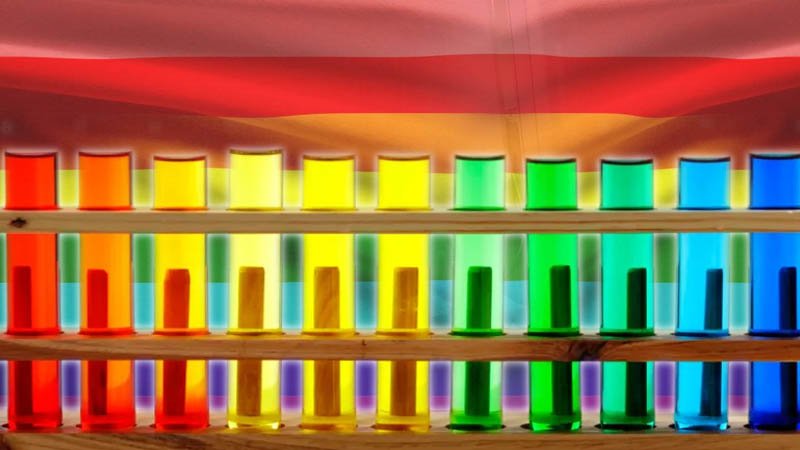According to the American Society for Biochemistry and Molecular Biology (ASBMB), state laws that limit LGBTQ+ Scientists rights are changing the landscape for LGBTQ+ Scientists.

In United States, LGBTQ+ Scientists have made significant strides in their fields. They have made groundbreaking discoveries, developed new technologies, and inspired others to pursue careers in science.
According to the American Society for Biochemistry and Molecular Biology (ASBMB), state laws that limit LGBTQ+ Scientists rights are changing the landscape for LGBTQ+ Scientists.
In recent years, state legislatures across the country have passed laws that restrict the rights of LGBTQIA+ people, including laws that ban transgender students from participating in sports that align with their gender identity and laws that prohibit teachers from discussing sexual orientation and gender identity in schools.
These laws have created a hostile environment for LGBTQ+ Scientists students and faculty in STEM fields, and they have made it more difficult for LGBTQIA+ people to pursue careers in science.
Experts have expressed concern about the impact of US laws for LGBTQIA+ scientists. They argue that these laws create a hostile environment for LGBTQ+ Scientists and make it more difficult for them to succeed in their careers.
In a 2022 study published in the journal Nature, researchers found that LGBTQIA+ scientists were more likely to experience discrimination and harassment than their cisgender and heterosexual colleagues. They were also more likely to report feeling isolated and unsupported in their workplaces.
The study’s authors argue that these findings highlight the need for more inclusive and supportive policies in the scientific community. They also call for increased awareness of the challenges faced by LGBTQIA+ scientists.
The ASBMB is urging scientists and science organizations to speak out against these laws and to support LGBTQIA+ scientists. The ASBMB is also working to create a more inclusive and supportive environment for LGBTQIA+ scientists in the scientific community.
State laws that impact LGBTQ+ Scientists
There have been a number of developments in U.S. state laws that have the potential to impact LGBTQIA+ scientists.
Florida’s “Don’t Say Gay” law
This law, which was signed into effect by Governor Ron DeSantis in March 2022, prohibits public schools from teaching about sexual orientation or gender identity in kindergarten through third grade. LGBTQIA+ advocates have argued that this law will create a hostile environment for LGBTQIA+ students and teachers in Florida schools.
Idaho’s “Fairness in Women’s Sports Act”
This law, which was signed into effect by Governor Brad Little in March 2022, prohibits transgender women and girls from participating in school sports that align with their gender identity. LGBTQIA+ advocates have argued that this law is discriminatory and will harm transgender students.
Texas’s “Heartbeat Act”
This law, which was signed into effect by Governor Greg Abbott in September 2021, bans abortions after six weeks of pregnancy, with no exceptions for rape or incest. LGBTQIA+ advocates have argued that this law will disproportionately impact LGBTQIA+ people, who are more likely to be poor and uninsured.
Impact of laws on LGBTQ+ Scientists
These are just a few of the recent developments in U.S. state laws that have the potential to impact LGBTQIA+ scientists. These laws are part of a larger trend of anti-LGBTQIA+ legislation that has been sweeping the country in recent years. LGBTQIA+ advocates are concerned that these laws will create a hostile environment for LGBTQIA+ people in the workplace and in society as a whole.
LGBTQ+ Scientists who live in states with anti-LGBTQIA+ laws may experience increased stress and anxiety about their safety and well-being. This could lead to decreased productivity and increased turnover rates among LGBTQIA+ scientists.
Those LGBTQIA+ scientists who live in states with anti-LGBTQIA+ laws may have reduced access to resources, such as mental health counseling and support groups. This could make it more difficult for them to cope with the stress and anxiety caused by these laws.
LGBTQ+ scientists who live in states with anti-LGBTQIA+ laws may face increased discrimination from colleagues, students, and administrators. This could make it more difficult for them to succeed in their careers.
Supporters of the laws argue that they are necessary to protect children from being exposed to “inappropriate” content about sexual orientation and gender identity. They also argue that the laws are necessary to protect women’s sports from being “unfairly” dominated by transgender women.
Opponents of the laws argue that they are discriminatory and harmful to LGBTQIA+ people. They argue that the laws will create a hostile environment for LGBTQIA+ students and teachers in schools, and that they will harm transgender students by preventing them from participating in school sports.
It is important to note that the debate about the recent development in U.S. state laws for LGBTQIA+ scientists is not just about the laws themselves. It is also about the larger issue of discrimination against LGBTQIA+ people in the United States.
The laws are part of a larger trend of anti-LGBTQIA+ legislation that has been sweeping the country in recent years. LGBTQIA+ advocates are concerned that these laws will create a hostile environment for LGBTQ+ people in the workplace and in society as a whole.